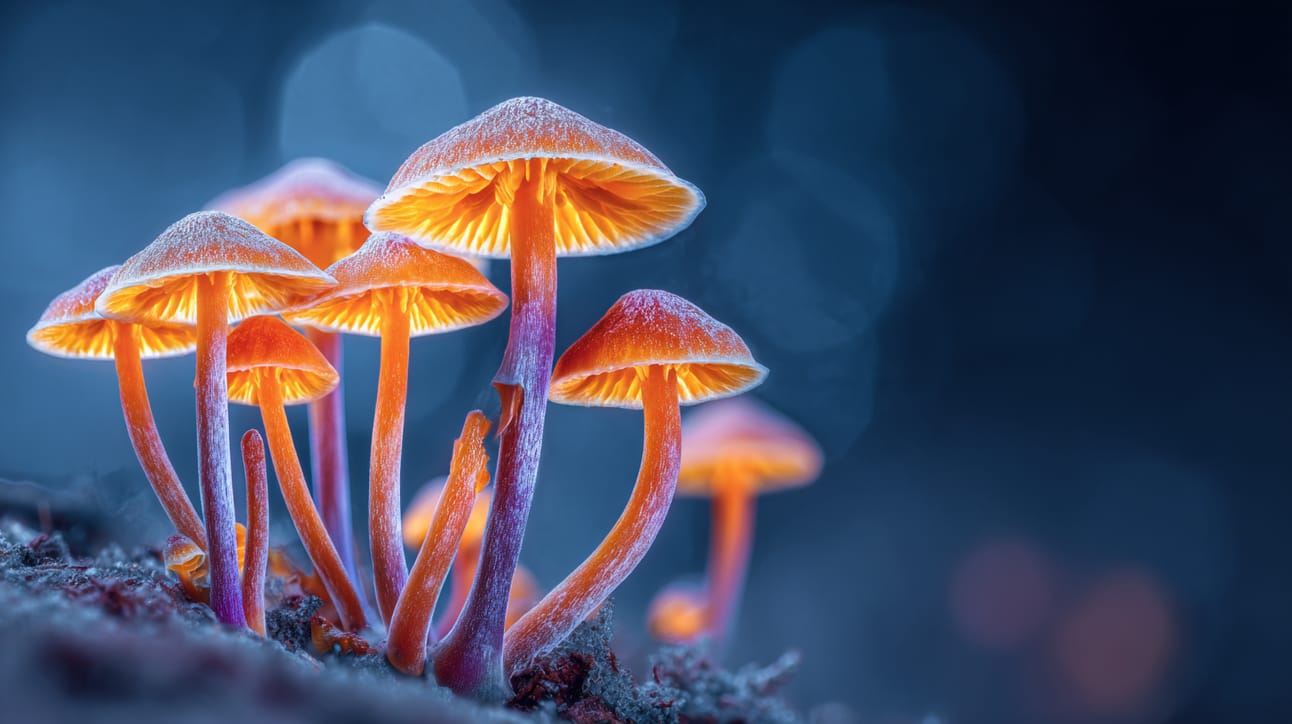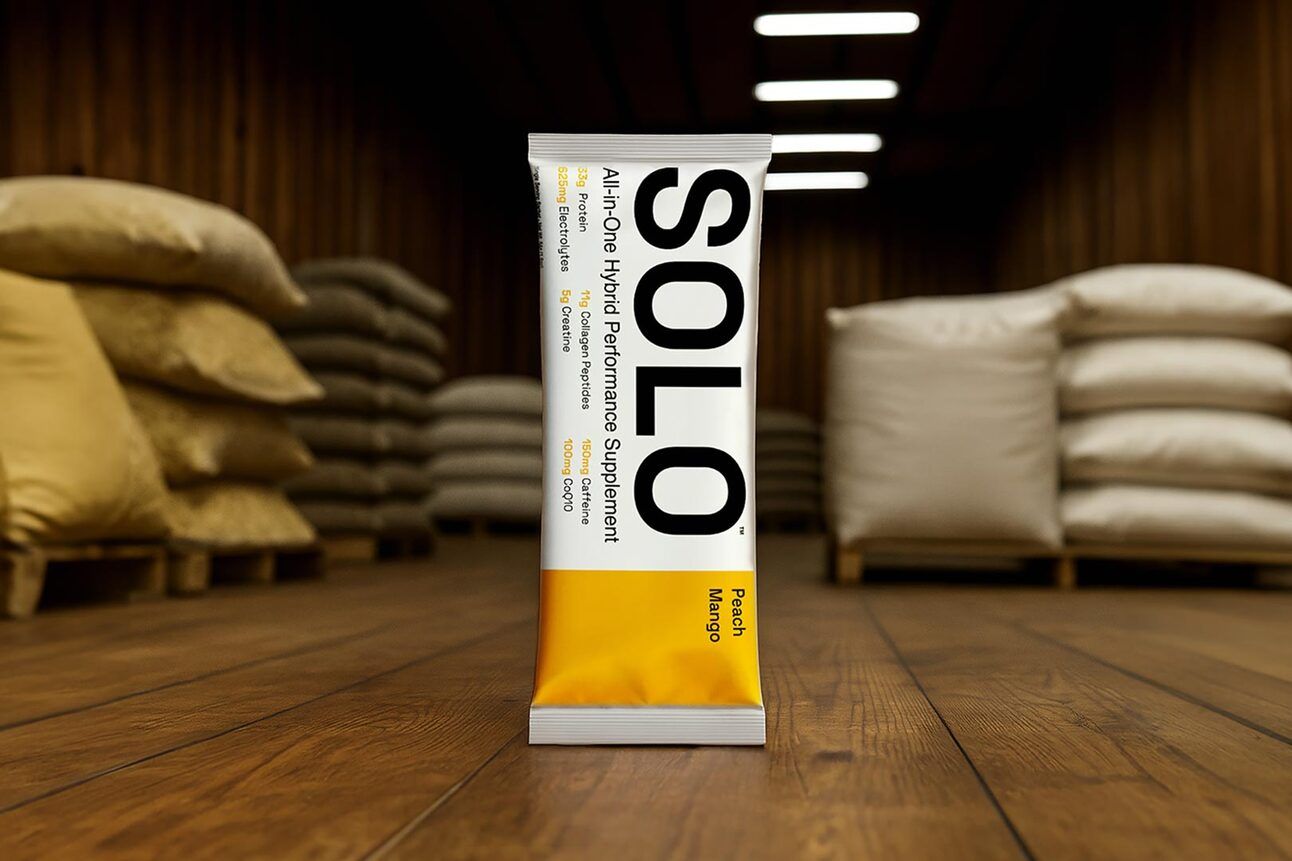Good morning. It’s July 16th, and even barbie has Type 1 diabetes now. Nothing says ‘girlboss’ like a pink insulin pump and perfect blood sugar. Let’s hope she doesn’t get kicked off medicaid…😏
The rundown for this week:
🍄 The mushroom study that’s turning heads.
💊 SOLO goes 5-in-one with recent launch.
🇮🇹 The Italian resort redefining wellness retreats.
🌞 Natural sunlight reigns supreme over screens.
Let’s get to it. 👇


Muscle&Fitness - The 10 biohacking trends for 2026 you should be watching now. (Read more)
Food & Wine - These overlooked fish, packed with omega 3’s and selenium, could help women live longer. (Read more)
Fox News - Biohackers World is coming to Chicago for the first time on July 26-27. Here’s what’s in store. (Read more)
Forbes - Inside the Italian resort, Palazzo Fiuggi, pioneering longevity retreats. (Read more)
HuffPost - This study suggests that 1 type of carb could actually help your longevity. (Read more)
Financial Times - Scientists find that brain ageing is the best predictor of healthspan. (Read more)

FROM THE CLINIC
Psilocybin Extends Cell Lifespan In Latest Trial
We’ve long known that psilocybin, the psychoactive compound in so-called “magic mushrooms”, can bend perception and brighten moods.
But what if it could also slow down aging at the cellular level?
That’s the latest story behind a peer-reviewed study published in Nature Aging and Longevity, where researchers administered psilocin (the metabolized form of psilocybin) to aged mice and human cells.
And the results are the talk of the town. 🥳
Microdosing psilocybin is already trending in Silicon Valley and psychotherapy circles, but monthly dosing for longevity? A surprising extension in both cell lifespan and animal survival, without any obvious toxicity or behavioral side effects.
Let’s break down the trial:
Researchers from Baylor, Emory, and other institutions set out to test whether psilocin (the active compound derived from psilocybin) could impact aging markers at the cellular and organism level.
In the lab, they treated human lung and skin fibroblast cells with two concentrations of psilocin (10 μM and 100 μM) to assess its impact on cell lifespan.
In parallel, they administered monthly injections of psilocybin or psilocin to aged mice (19 months old, roughly equivalent to 60 in human years) at doses of 5 mg/kg and 15 mg/kg over a 10-month period. Control groups received no psychedelic treatment.
Here’s what they tracked:
Cellular lifespan (how long fibroblasts survived)
Oxidative stress markers
Telomere length (a key marker of cellular aging)
Survival rate in mice
Gene expression changes, especially longevity-related pathways like SIRT1
And the results were impressive:

Over 150 clinical studies have explored pscilocybin’s effects on depression, anxiety, addiction, and even Alzheimer’s.
But this time it’s different.
This is the first published evidence showing psilocin can extend lifespan at both cellular and whole-organism levels.
More research is needed in humans, but it’s a landmark moment in the crossover between psychedelics and aging research.

IN THE NEWS
SOLO Launches With All-In-One Performance Supplement
If you’ve ever juggled five different powders before a workout, you’re not alone.
SOLO is trying to simplify that routine with its latest innovation - an all‑in‑one packet that contains protein, creatine, collagen, electrolytes, caffeine, and CoQ10.
One scoop. No tubs, no timers, and less decision fatigue.
There’s an old saying you might know.
Jack-of-all-trades, master-of-none.
Will SOLO fall into that category?

Another day, another layer of evidence showing the health benefits of natural sunlight.
In this recent study on vision/optical health, those longer wavelengths restored mitochondrial membrane potential (aka your inner battery), leading to a boost in energy production, vision function, and cognition.
And guess what doesn’t help?
Blue light. UV light.
Everything blasting out of our screens and LED bulbs, sucking the life out of us.
Less doomscrolling = more sunbathing. 👇🏼
And presented without comment…
Bryan Johnson’s boner is back in the headlines:





